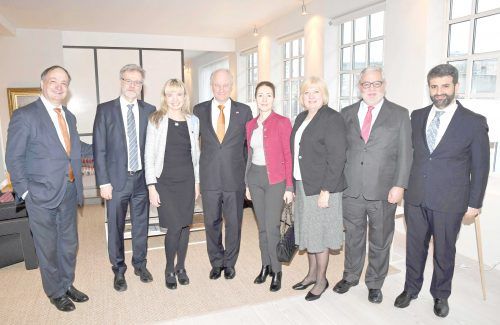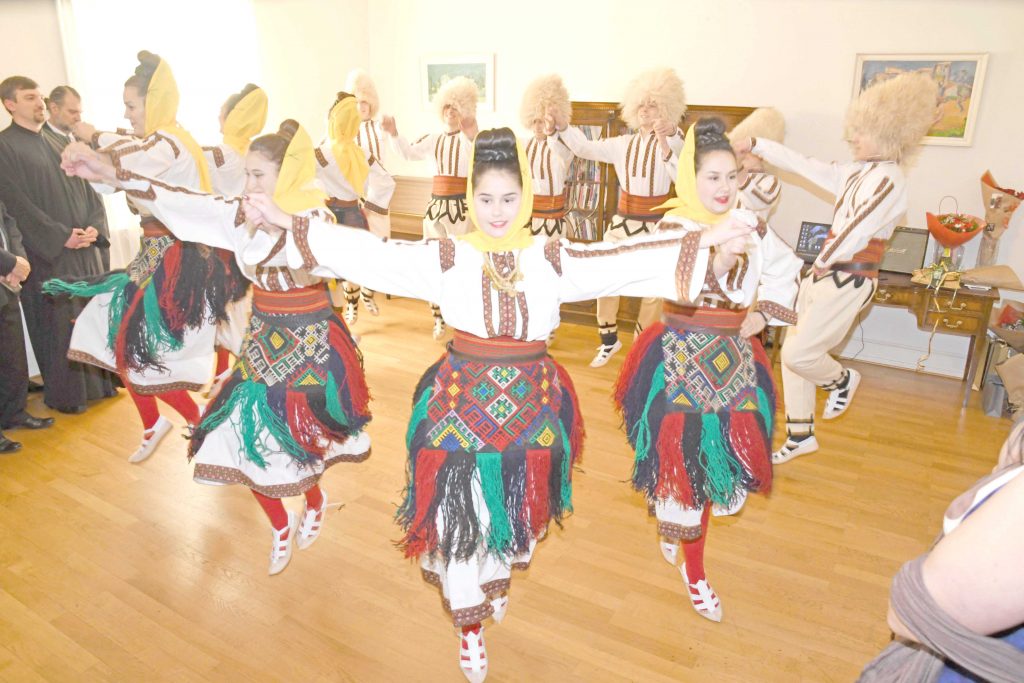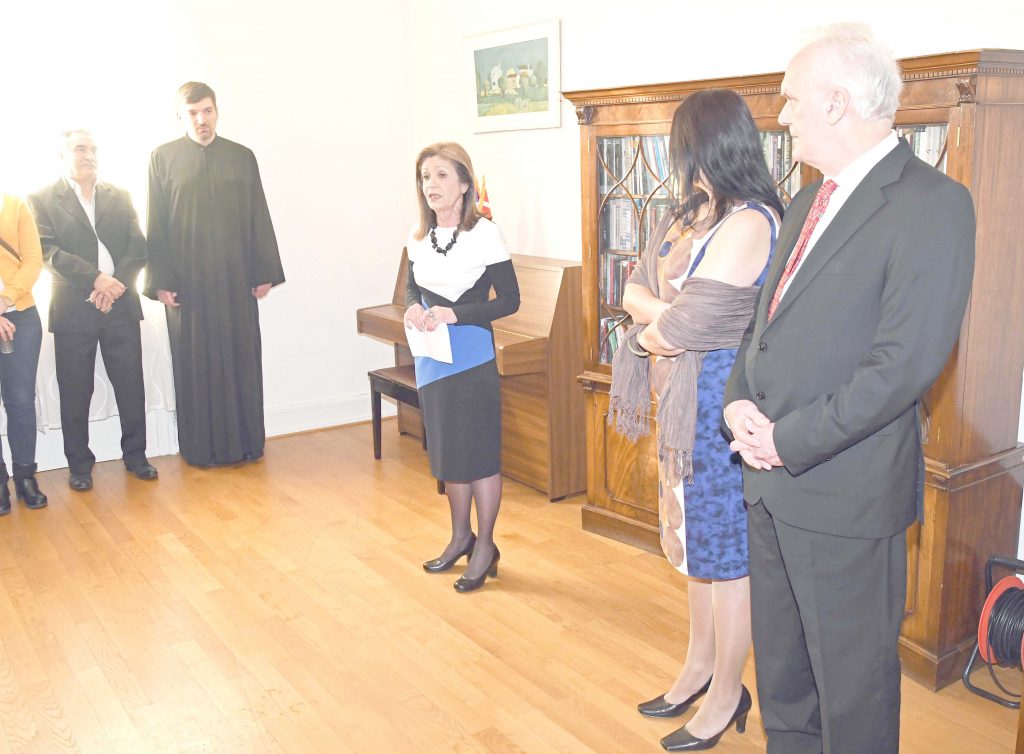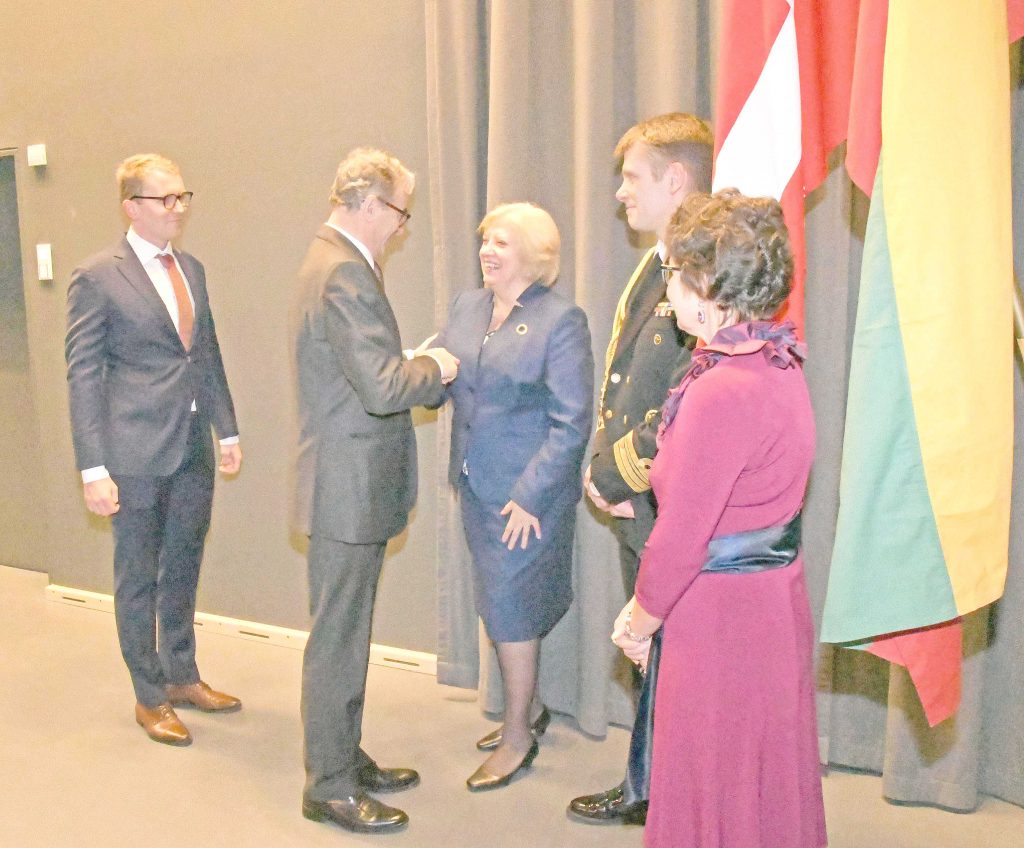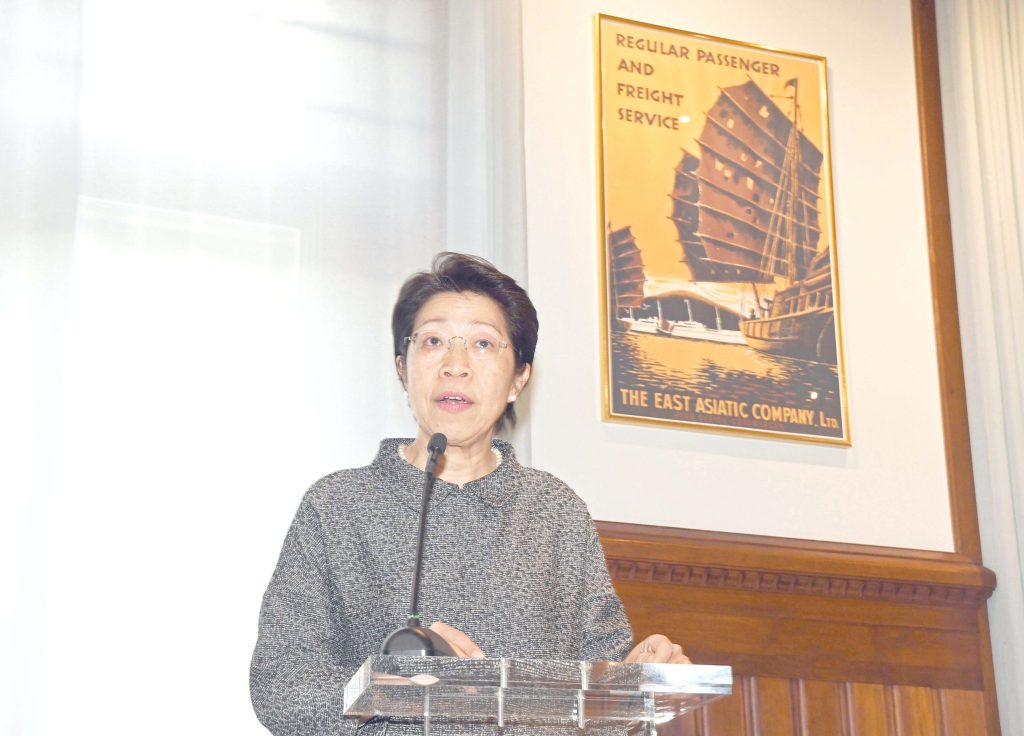Three European countries have celebrated their national days in February: the Netherlands, Serbia and Lithuania. The Dutch affair on February 9 saw many members of the diplomatic corps gather at the new residence of ambassador Henk Swarttouw at Islands Brygge.
Among those in attendance was US deputy ambassador Laura Lochman (right).
Folk dancing in national dress was prominent at the Serbian event.
Then ambassador Dragana Ivanovic addressed her guests.
And Lithuania’s celebrations included a concert at KUBE Frederiksberg – among the guests welcomed by Lithuanian ambassador Ginte Damusis were Belgian ambassador Leo Peeters.
Not to be outdone, the Eastern Hemisphere has also been celebrating hard, with both Australia and Iran marking their national days, and a new Asia House opening. Australian ambassador Damien Miller welcomed scores of diplomats to his event at Nordatlantens Brygge on January 26, including Chinese ambassador Liu Biwei.
Iranian ambassador Morteza Moradian oversaw proceedings at his embassy in Hellerup on February 10.
Eleven days later, it was the turn of Asia House, which has undergone a physical rejuvenation and now offers a range of new initiatives. Among those present were Thai ambassador Vimon Kidchob.

